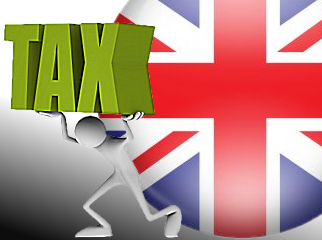 Online betting companies serving customers in the United Kingdom will be required to pay 15% tax on the gross profits they generate from those customers, regardless of where those companies are located. The point of consumption tax, which the government believes will provide an annual boost of £300m to the nation’s tax coffers, will be confirmed when the Tory government unveils its next Budget statement in March and will take effect as of Dec. 1, 2014. Sajid Javid, economic secretary to the Treasury, said the changes would “ensure that remote gambling operators who have UK customers make a fair contribution to the public finances.”
Online betting companies serving customers in the United Kingdom will be required to pay 15% tax on the gross profits they generate from those customers, regardless of where those companies are located. The point of consumption tax, which the government believes will provide an annual boost of £300m to the nation’s tax coffers, will be confirmed when the Tory government unveils its next Budget statement in March and will take effect as of Dec. 1, 2014. Sajid Javid, economic secretary to the Treasury, said the changes would “ensure that remote gambling operators who have UK customers make a fair contribution to the public finances.”
The news doesn’t come as a shock, having been identified two years ago as a key component of the government’s new Gambling (Licensing and Advertising) Bill, which is currently winding its way through the legislative process. That legislation will require all UK-facing operators to hold a license issued by the UK Gambling Commission, bringing to an end the so-called ‘white list’ that allowed operators licensed in Alderney, Antigua, the Isle of Man and Gibraltar to advertise their services in the UK. Companies that fail to adhere to the UK’s new system will face unlimited fines, prison terms of up to seven years as well as the revocation of their remote gambling licenses.
While not a surprise, the impact on UK-facing companies that had relocated their online operations outside the UK will be significant. Gibraltar-based companies like Betfair, Bwin.party, Coral, Ladbrokes and William Hill currently enjoy a 1% tax rate with a £425k cap. Clive Hawkswood, head of the Remote Gambling Association (RGA), told Reuters that the members of his lobby group had long expected this tax axe to fall and now that the specific rate has been spelled out in print, “the focus for us now is on trying to get the actual rate of the tax reduced.” Hawkswood suggested a rate below 10% was more to the industry’s liking and would ultimately be supported by a new industry-commissioned KPMG report.
Hawkswood warned that the government’s revenue estimate was based on 20% of the market going untaxed via operators licensed in jurisdictions “not exactly within the Treasury’s reach.” Hawkswood sketched out a scenario in which UK-licensed operators passed on the costs of the new tax onto punters, who would respond by seeking out better value with “new rivals springing up in the Caribbean, Central America.” Hawkswood wants the government to impose a system that allows UK-licensed operators to be competitive “with places that have zero or 1% tax.”
Operators will have until Sept. 30 to comment on the government’s plan. Hills’ chief exec Ralph Topping has previously suggested that a European Commission challenge may be in the offing, based on operators’ belief that the plan is more about revenue generation than consumer protection, which would run counter to European Union edicts.






